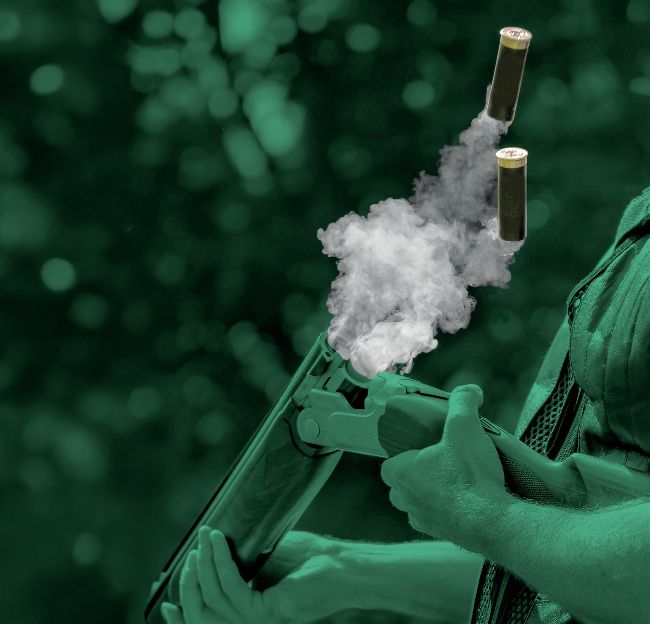FURTHER PROPOSED REVISIONS TO THE STATUTORY GUIDANCE
Barrister and firearms licensing expert Nick Doherty examines the latest draft revisions to the Statutory Guidance on firearms licensing, highlighting proposed changes that signal a tightening of procedures around suitability assessments, home visits, referees and medical evidence.

IMAGE: SHUTTERSTOCK - GRAHAM L KEMP
Readers will be aware that since the introduction of the Statutory Guidance (SG) in November 2021 it was revised in February 2023. There are now proposals for further revisions. The proposals are still in draft form. There would not be room in an article of this type to descend into much detail, and the proposals may be varied subject to further consultation. It may be helpful however to consider the general direction of travel.
Since the Coroner reported on the shootings in Plymouth in 2021 ‘Suitability’ has been at the forefront of considerations in firearms licensing. It applies to individuals and RFDs equally. Depending on how you chose to count the ‘risks’ identified in the SG, there are perhaps 50 or so factors identified which indicate a risk of danger to public safety or the peace.
Legal precedent around how statutory bodies and the courts should follow guidance has always suggested that it involves “a greater degree of consideration than to merely ‘consult’, but plainly does not mean … ‘follow’ or ‘slavishly obey’.” This is important as the law, as in the Firearms Acts and the decided cases, only consider one principle test – can the applicant be permitted to possess firearms without danger to public safety or the peace? This is set out at 3.1 in the SG. What follows however dilutes that consideration and leads the reader, the police or the court, to accept that the presence of an identified factor is itself evidence of danger. Factors may be present in a given case, but do they mean that individual or RFD is actually a danger to public safety with firearms? Firearms licensing is about risk assessment, but surely it has to be a realistic consideration of risk. The mere fact an issue is identified within the SG does not conclusively answer that question.
THE PRINCIPLE PROPOSED CHANGES
An obvious proposed change is that the word ‘should’ or ‘shall’ is often replaced with the word ‘must’ when indicating the duty on the police to abide by the SG. In my experience, most licensing departments have already applied the SG in that way.
Greater emphasis will be placed upon home visits – not just on application, but on each and every renewal. If a home visit is considered unnecessary on renewal, the ‘strong reasons’ for that decision are to be recorded. Interviews with an applicant’s partner and other family members residing at the address are ‘crucial’ to obtain a ‘comprehensive picture of the applicant’s home circumstances.’
Where a home visit is not necessary there will often be a phone call or video interview with the applicant as well.
Other proposed changes which I consider relevant are as follows: If an applicant changes referees at any point following initial grant ‘reasons for the change should be explored’. This assumes an applicant with a wide choice of suitable friends and colleagues has even remembered who they asked 5 years ago. Referees are clearly going to play a more important role and will be asked for much greater detail about the applicant and whether they ‘understand their responsibilities as a referee’. That includes knowing who to contact if they have ‘concerns about the applicant’s suitability in the future’. There is a debate to be had about whether a reference can only be given as at the date provided or not. Will perfectly willing and acceptable referees be wrongly discouraged from fulfilling the role? Applicants will need to draw potential referees’ attention to the guidance for referees in advance.
The medical evidence section is tightened up regarding co-operation and information from GPs. ‘Neuro-developmental condition’ such as ‘Autism Spectrum Disorder’ is added to the conditions which could be a concern depending on severity. Police will advise GPs on renewal as well as grant regarding the marker on the patient’s record.
The danger indicated by allegations of domestic violence is enhanced. A Domestic Abuse Risk Assessment form should be completed in all cases where such indications are present. Other relevant agencies must be consulted.
Evidence of dishonesty or a lack of integrity will be expanded, although it is where applicants have been ‘deliberately’ dishonest. Forgetting that speeding conviction 20 years ago is not relevant.
The possibility of a Closed Material Procedure within an appeal is now set out in the SG. This provides that in some cases the police will be able to provide evidence to the court, but not to the appellant. As the SG makes clear, the maximum amount of evidence that can be disclosed should be.
There is little change proposed for RFDs other than the general factors set out above. With RFD servants it is clarified that medical checks are not required in all cases and police should not disclose medical information regarding a servant to the RFD.
There is currently no indication when, or to what extent these proposed amendments will be brought into force, but I imagine most of them will be.
We’d love to hear your thoughts on this topic. Email your views to editorial@twsgroup.com.